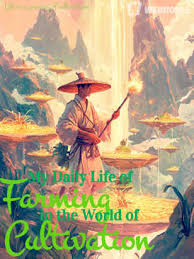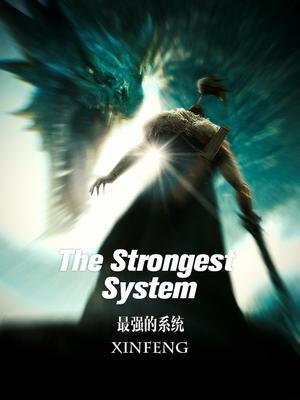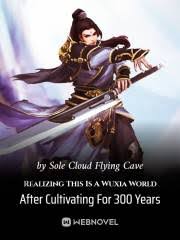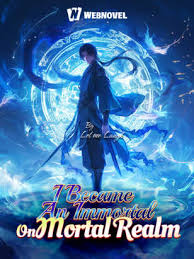The Story in 3 Sentences
A frustrated agronomy graduate named Fang Yun is flung into a brutal xianxia world where immortals duel and beasts roar, armed with nothing but his farming knowledge and a silent, enigmatic system that rewards him with Life Essence Qi from his crops.
Instead of chasing swords or sects, he digs his heels into the dirt, obsessively merging modern agricultural science with mystical cultivation to turn barren plots into thriving, spirit-infused farmland, quietly building an empire of soil and seed.
His peaceful, self-sufficient haven inevitably draws the covetous eyes of the violent cultivation world, forcing the gentle farmer to wield his vines and tilled earth as weapons to defend his hard-won sanctuary.
Why It Stands Out
1. The Ultimate Slow Burn: Farming as High-Stakes Cultivation
This novel redefines power progression. Every planted seed, every harvested crop, is a deliberate step on the path to immortality. The tension isn’t found in flashy duels but in the anxious wait for sprouts to break soil or the meticulous calculation of spirit fertilizer ratios. It turns the mundane act of farming into a thrilling, high-stakes cultivation technique, where a bountiful harvest is as significant as breaking through a major realm. The reader’s reward is witnessing the tangible, beautiful growth of the land, mirroring the protagonist’s own quiet, powerful ascent.
2. A Protagonist Who Cultivates Peace, Not Conflict
In a genre saturated with bloodthirsty heroes, Fang Yun is a revolutionary breath of fresh air. His primary drive isn’t vengeance or dominance; it’s the pure, almost meditative satisfaction of creation and growth. He avoids trouble with the diligence of a man weeding his garden, preferring research, experimentation, and quiet development. When conflict is unavoidable, his victories feel earned and grounded, born from preparation and ingenuity rather than plot armor, making his rare moments of decisive action profoundly impactful.
3. World-Building Rooted in the Soil
The novel’s greatest triumph is its immersive, tactile world-building. The cultivation world isn’t just a backdrop; it’s an ecosystem that Fang Yun interacts with and reshapes. The properties of spirit rice, the behavior of magical insects, the way qi flows through different soils – these aren’t abstract concepts but practical, daily challenges. It creates a rich, believable setting where the rules of nature and magic are intertwined, making the protagonist’s agricultural innovations feel like genuine, world-altering discoveries.
Characters That Leave a Mark
There’s the perpetually lost disciple – a source of unintentional comedy who earnestly believes Fang Yun’s farm is a hidden, elite sect and treats weeding as a sacred, high-level cultivation exercise, adding levity to the protagonist’s serious endeavors.
You’ll meet the skeptical clan elder, who initially dismisses Fang Yun’s “peasant” methods but is gradually, grudgingly forced to acknowledge the undeniable power and efficiency of his spirit-infused harvests, representing the old world’s reluctant acceptance of the new.
And the captured cultivator, Feng Shaotian? They’re the one who embodies the weary soul seeking peace, becoming an unexpected, quiet ally whose simple desire for tranquility resonates with Fang Yun’s own philosophy, offering a poignant counterpoint to the world’s inherent violence.
The Flaws Fans Debate
The pacing is glacial, with entire chapters dedicated to the protagonist’s internal monologues about soil pH and crop rotation, which can feel like padding to readers craving faster plot advancement.
The translation is inconsistent, occasionally jarring the reader by switching from a third-person narrative to a first-person perspective without warning, breaking immersion.
The author abandoned the story at Chapter 280, leaving major plot threads unresolved and the protagonist’s ultimate fate unknown, which is a devastating blow for invested readers and overshadows the novel’s many strengths.
Must-Experience Arcs
Ch. 1–50: The Seedling’s Struggle – Fang Yun arrives in the cultivation world with nothing. This arc is a masterclass in humble beginnings, as he scavenges for basic seeds, learns the hard way about spirit-infused soil, and unlocks his system’s first meager rewards. It’s about survival, experimentation, and the pure, unadulterated joy of seeing his first spirit rice stalks grow, laying the foundation for everything to come.
Ch. 100–180: The Blooming Oasis – Having secured a foothold, Fang Yun’s farm begins to flourish. This arc focuses on expansion and innovation. He develops new hybrid crops, attracts curious (and sometimes troublesome) visitors, and his farm becomes a beacon of abundance in a harsh world. The tension shifts from survival to management and defense, as his success inevitably draws envy and the first serious threats to his sanctuary.
Ch. 220–280: The Harvest of War – Peace shatters as powerful external forces, coveting Fang Yun’s unique resources and techniques, launch a full-scale assault. This final, incomplete arc is a dramatic shift, forcing the farmer to become a general. He weaponizes his land, using enchanted vines and terrain-altering techniques to defend his home in spectacular, earth-shaking battles, showcasing the terrifying power his peaceful cultivation has secretly nurtured.
Killer Quotes
“True cultivation is not measured in the height of one’s sword, but in the depth of one’s roots.”
“The earth does not care for your rage or your ambition; it only asks for patience and care, and in return, it gives life.”
“A single seed holds the defiance of a thousand storms.”
Cultural Impact
Fans online passionately lament its cancellation, with “RIP Fang Yun’s Farm” becoming a common refrain in xianxia forums, a shared moment of mourning for a story cut short.
It sparked countless discussions and fan theories about what hybrid spirit-plants Fang Yun could have created next, turning readers into amateur agronomists of the mystical.
The novel is frequently cited in “Best Slow-Burn Cultivation” lists, praised for its unique premise even as readers warn newcomers of its tragic, unfinished state, creating a bittersweet legacy.
Final Verdict
Start Here If You Want:
A beautifully written, meditative escape into a world where growth is the ultimate power.
A protagonist who wins through intelligence, patience, and hard work, not brute force.
A unique xianxia experience that celebrates creation over destruction, offering a peaceful, albeit ultimately tragic, alternative to the genre’s norms.
Study If You Love:
Deep, systemic world-building where magic has tangible, ecological rules that can be studied and manipulated.
The literary exploration of pacifism and self-sufficiency as radical, powerful philosophies in a violent setting.
Narratives that find epic stakes in the quiet, everyday acts of nurturing and building, turning the domestic into the heroic.
Avoid If You Prefer:
Fast-paced, action-driven plots with constant battles and rapid power escalation.
Stories with neatly tied-up endings and complete character arcs.
Flawless, professionally edited translations without any jarring inconsistencies.





